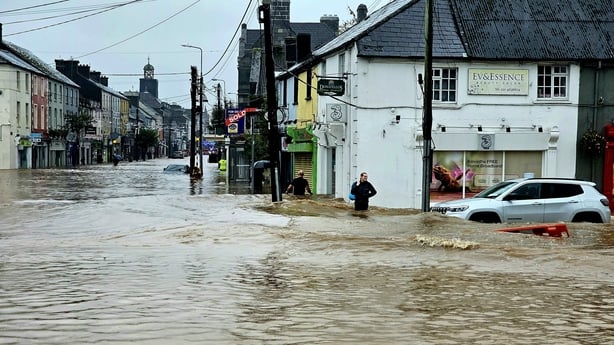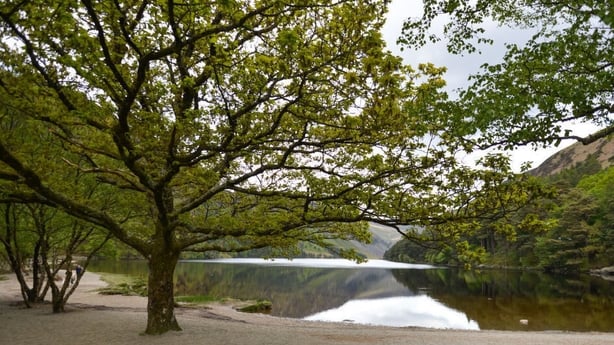Ireland needs to do more to adapt to climate change, according to the Climate Change Advisory Council (CCAC) which says investment is urgently needed to avoid the worst damage and higher costs that it can bring in future years.
The council published its annual progress report on how Ireland is preparing for the impacts of climate change.
It said coastal erosion and flooding are the biggest risks.
The report suggests part of the budget every year should be ring-fenced for adaptation measures, including making road and electricity networks more resilient to climate change.
It predicts coastal flooding will cost €2 billion every year by 2050, if adaptive measures are not taken.
In the same scenario, river flooding would cost €60 million per year.
It said that these costs could be greatly reduced if there is sufficient investment now and the right measures are taken.
The council estimates that "gross damages costing over 2.7% of GDP can be reduced to residual damages costing less than 1% of GDP at protection costs of 0.25% (of GDP) by applying adaptation policies".
Chair of the CCAC's Adaptation Committee Professor Peter Thorne said: "One thing that's commonly a misconception is that if we stop emitting greenhouse gases, suddenly climate will get better again.
"Climate won't get better again.
"It will just stop getting worse."

Professor Thorne said it is key that "we stop emissions as quickly as possible, both nationally and globally".
But, he warned, "we have to get real that we now need to take adaptation incredibly seriously if we are to protect our citizens".
The report said Ireland is already feeling the impact of climate change, citing the flooding in Midleton, Co Cork, and coastal erosion in Co Wexford and Dublin alongside extreme rainfall events among other examples.
It said last year was the wettest on record in Ireland "which led to major agricultural impacts".
CCAC Adaptation Committee Member Professor Conor Murphy, from Maynooth University, warned that "if we look over the last 12 months", there has been a "clear climate change signal impacting extreme events".
Professor Murphy cited examples of the Midleton floods, difficult harvests and the "very wet winter and spring".
"The climate change signal is evident in Ireland and those extreme events will become more frequent, more severe into the future," he said.
The council said adaptation is not just about increased investment, adding that the Government also needs to make plans.
"The Department of Housing, Local Government and Heritage urgently needs to prioritise the immediate development and deployment of a national coastal management strategy," it said.
It also called for recruitment and training of skilled staff across Government departments and state agencies, particularly in local authorities.

Committee Member Eavan Crehan of the National Treasury Management Agency, in a panel discussion at the launch of the report, said the benefits of adapting to climate impacts are not always evident to decision makers.
She said: "From a financial or commercial perspective, the problem in a way is with adaptation, a lot of the benefits are avoided costs and they come in an economic cost benefit analysis.
"They don't come in a financial appraisal where you say, 'it's going to cost me X million up front and these are the returns I'll generate’."
However, she added that some commercial semi-state organisations are keenly aware of the need to adapt to the changing climate.
"Some of the key infrastructure providers, like Eirgrid for example, are taking action because it's to protect their assets and to protect their ability to perform their function, not because it's a mandated duty that Government says they have to do," she said.
The report gave a score card for how different sectors are doing on adaptation.
Transport scored best with an overall grade of good while governance and resourcing was graded as "advanced progress".
Biodiversity got a score of "no progress/insufficient evidence" and the report warned that biodiversity is already declining in Ireland and that is undermining the sectors' ability to adapt.
It warned "without early and significant adaptation, climate change will result in severe impacts on many species and habitats".
It called for increased investment in the National Parks and Wildlife Service to "ensure that adequate human and financial resources are dedicated to conservation and restoration initiatives that will enhance the resilience of habitats and species to climate change".
It also called for a National Climate Risk Register to monitor the impacts of climate change and this should be managed by the Central Statistics Office, Tailte Éireann with support from the Local Government Management Agency.








